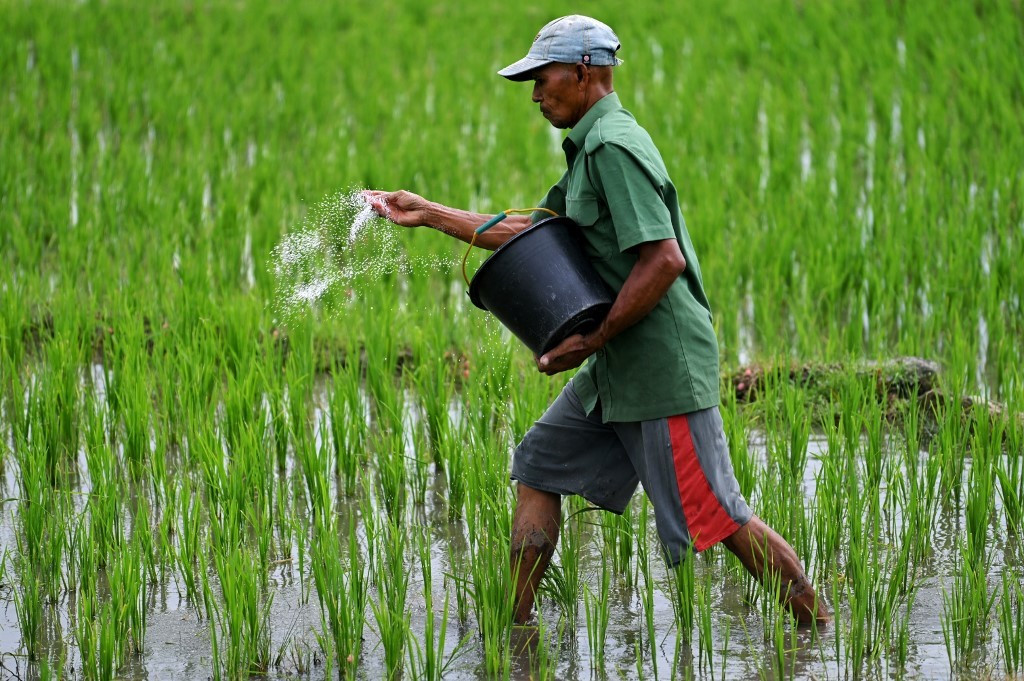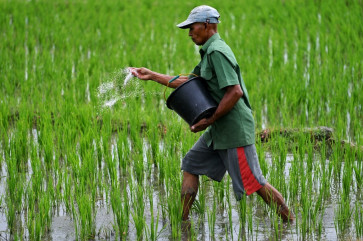Popular Reads
Top Results
Can't find what you're looking for?
View all search resultsPopular Reads
Top Results
Can't find what you're looking for?
View all search resultsWorld Bank expects RI rice output to shrink by 2030
According to the World Bank's projection, the country's rice production could fall 0.72 percent in the next 10 years due to warming temperatures, pointing to a greater need for targeted measures to keep the staple food affordable.
Change text size
Gift Premium Articles
to Anyone
T
he World Bank forecasts a decline in Indonesia’s rice production over the next decade due to rising temperatures, underscoring a need for research and development to keep the food commodity affordable.
Carolyn Turk, World Bank country director for Indonesia and Timor-Leste, said that hotter weather could lead to droughts as well as increased risk of pests and diseases.
These potential challenges could reduce the country’s rice harvests 0.72 percent by 2030, Turk said on Thursday at this year’s Indonesia International Rice Conference (IIRC) in Bali, Detik.com reported.
This also pointed to the importance of containing price pressure in rice production, noted the World Bank official, an economist and development expert who is now based in Jakarta after working in several developing countries with the international organization.
She also weighed in on Indonesia’s agricultural policy, suggesting more government support to increase land productivity.
Big spending on subsidized fertilizers had not resulted in the desired productivity boost, Turk said, while noting that spending much of the agriculture sector’s limited budget on fertilizer meant little money was left to spend on other things.
She suggested instead that some of the funds spent on fertilizer could be used to invest in research and development as well as training farmers, which generally produced greater added value.

















